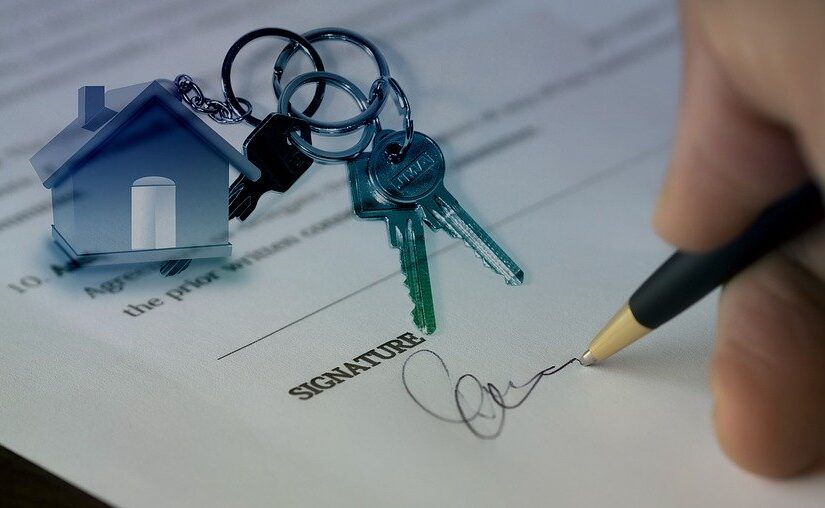Are you preparing to purchase a new house? Perhaps, it would be the most significant investment decision you will ever make in your life. In the 21st century, a new home doesn’t cost less than a fortune, which means you need to be extremely careful with your decision. Whether it is your first purchase or you are an experienced buyer, purchasing a property is no easy feat.
You have to look after many things – from licenses, contracts, property prices, and especially your budget. Some people end up overspending on the purchase price without acknowledging the piles of expenses waiting on the door post-home acquisition. Likewise, you have to find a trustworthy realtor to get the best prices.
Thus, before handing over that fat wad of cash, do some research? See whether everything is up to the mark and according to your preference. After all, you are not spending heaps of money to settle for anything less than perfect. If you are clueless about this, we have everything ready for you. Here are five things to know before buying a house.
1. Determine the Value of Property
Is your home even worth millions of dollars? The concept of the value of money kicks in as everyone wonders whether it is worth making a massive investment. Usually, the cost depends on the location – whether it is a sea-facing house or in the middle of a busy street. Having a home in posh areas like mont botanik residence, near the Elizabeth Drive, off Hillview Avenue, offers rustic serenity, will be worth more than any other housing society.
Moreover, determine the potential value of your home as there is no rocket science in it. Although the dynamics of markets are continually changing, it can still help you understand whether your purchase is worthwhile. Search the recent sales of similar properties by looking at the following characteristics:
- Property should have the same number of bedrooms, bathrooms, and garage space.
- It should be within 2km of the same area.
- The sale should have occurred in the past six months.
- The size/area of the land should be the same.
- The property type has to be the same – one-story, unit, townhouse, etc.
2. Look beyond Paint
Sometimes, the fascinating colors and lights are enough to please you into buying an entire house. But is that a wise decision? You cannot ignore other aspects, especially altering kitchen cabinets and bathroom hardware, which is heavy on pockets.
Therefore, look beyond those fancy walls and see whether the home needs significant repairs. Alongside considering the cost of appliances, counters, and cabinet, also acknowledge labor costs for the installation process. However, it does not mean you should give up on a home that needs minor fixes; instead, recognize all potential costs to see whether your budget is giving a green signal.
3. Consider all Costs
Unfortunately, your job does not end after purchasing the house since the list of expenses is pretty long. In short, the purchase price is only one piece of owning the house, which means you have may have to consider all costs associated with the new home. It might be purchasing an insurance plan, license fees, real estate taxes, and other moving costs. Likewise, you would be coughing up money on home improvements – heating, cooling systems, new decoration pieces, or private swimming pools.
4. Learn about Potential Rental Income
Even though you are not thinking of renting your property, but it is always worth knowing how much rent your home can generate. It is also crucial to know about the fundamentals of a rental market. Hence, look for low vacancy rates, the balance of supply and demand, and good rental yields. Feel free to ask the real estate agent for a rental appraisal to determine your rental income.
Next up, you have to scroll through listing websites, filter your target, and match characteristics of the property with your tenants. It exposes you to the rental ranges of those properties, giving you a fair idea of how much rent you may generate from your rental property. Honestly, understanding every aspect of your property will help you out in the future.
5. Do Not Forget to Negotiate
Brace yourself to sign plenty of papers because the paperwork is insane when you are buying a house. These are not random papers, but contracts which state different clauses about payment terms, taxes, filing returns, etc. It might seem like a standard home buying contract, but remember, there is always room for some negotiation.
Thus, before signing the contract, make sure to review all the papers and see where you can cut corners. Similarly, if you want some more time for inspection or wish to waive a radon test, you can make this a part of your contract deal. You either have to learn ropes or get in touch with a savvy realtor to help you with these matters.
Wrapping Up
Buying a home is nothing like going shopping for clothes – you like it and buy it. A lot of planning goes into the purchasing of a property to ensure you are putting your savings in the right place. You have to select a posh location, get a license, find property dealers, and consider the additional costs. Therefore, start familiarizing yourself with all the real estate essentials to get your dream house.







